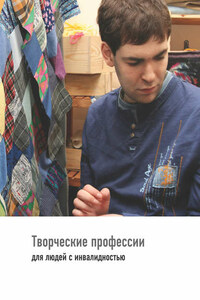Very early on a July morning in 1919 Constable Brown was on his beat in Kensington, in the immediate neighbourhood of Cathcart Square.
Cathcart Square was an old-fashioned backwater of this highly respectable suburb. It had not been built on any regular lines. Small, narrow houses nestled comfortably by the side of what might be called mansions. At the entrance to the Square itself, a narrow-fronted milk-shop stood next door to a palatial residence. The dairy was very old, and the Square, with its strange agglomeration of houses, had been built round it.
Constable Brown, a tall, strapping young fellow, took his duties easily. He was quite contented with his lot, and not thirsting for promotion; he had no overweening sense of his own abilities. He was friendly with all the cooks on his beat, and from them he received very choice tit-bits. In his case, the policeman’s lot was a fairly happy one.
The morning was a very bright one, a somewhat powerful summer sun had just risen, and flooded the streets with light.
He had no need of his lantern, early in the morning as it was. He strolled slowly round the Square, turning observant eyes on all the houses. In his patrol, he met nobody. The busy world of commerce was not yet astir. Only from afar he heard the distant rumbling of market-carts on their way to Covent Garden, market-carts laden with fruit and vegetables.
The Square was sleeping. In a few more hours it would wake to vigorous life. The dairy shop would take down its shutters, and show signs of animation. And when the dairy shop took down its shutters, Constable Brown would be relieved, and go home to enjoy his well-earned rest.
All was quiet in the Square. Brown had patrolled it several times in his nightly vigil, and had discovered no signs of marauders.
He paused opposite Number 10, one of the few big houses. He looked contemplatively at the board announcing in large type – THIS HOUSE TO LET: FURNISHED – with the agent’s name displayed prominently at the foot of the bill.
“Only house to let in the Square,” ruminated Brown, as he stood reading the bill for perhaps the hundredth time. “It’s been empty now for over three months. It ought to have been snapped up long ago.”
He was right. Houses in Cathcart Square did not wait long for tenants. Mr Brown ruminated further, and provided his own solution.
“Old Miles, the caretaker, has got too comfortable quarters, he doesn’t want to flit. When people come to view, he talks to them about damp, or ghosts or beetles, and chokes them off. Artful old devil, Miles, and a bit too fond of drink.”
Having finished his patrol of the Square itself, he passed along the backs, abutting on a somewhat mean street, for a rather undesirable neighbourhood had built itself around these somewhat stately houses.
His perambulations brought him to the back of Number 10, the house to let. His trained eye, accustomed to take in the smallest details, noticed a broken pane of glass in the scullery window. He climbed over the low railing which shut off the back premises from the mean street on which they looked, and peered at the broken window-pane. From a general point of view there was not much in it. Window-panes are broken every day. But this was an empty house, looked after by a somewhat bibulous caretaker of the name of Miles. A hundred chances to one that Miles had stumbled against it, and broken it with his elbow.
But although Constable Brown was not very brilliant, he was painstaking and methodical; his mind was slow but tenacious. He did not accept facts at their face value.
After peering through the broken pane, he proceeded to further experiments. He lifted the window, and it went up easily. He drew his deductions swiftly. Somebody had entered the empty house. That somebody had smashed the pane in order to get at the latch, had entered the house, later emerged through the window and forgotten to fasten it.
But why enter an empty house, where there was nothing to steal except the heavy furniture left by the late tenant, a Mr Washington, who was abroad? Brown knew for a fact from the caretaker that all silver and plate had been lodged at Mr Washington’s bank. It was a puzzle.
One thing was clear: his duty lay straight before him. He must go over that empty house. A careful examination might reveal something or nothing.
But he was a very cautious man, and with no great belief in his own powers. He would not make the examination alone. He blew his whistle for further assistance.
In a few seconds, a fellow constable, a smart young fellow, hurried up to him. Brown pointed to the broken pane, the uplifted window. The smart young man projected himself through the open space. Brown followed, explaining as he went.
They searched the basement, the ground floor, and the floor above – with no result.
“Now for the caretaker,” said the younger and the more quick-witted of the two policemen.
“He sleeps up at the top,” answered Brown. “He generally comes home half-seas over. If a regiment was hammering at the door he would not wake till his sleep was done.”














